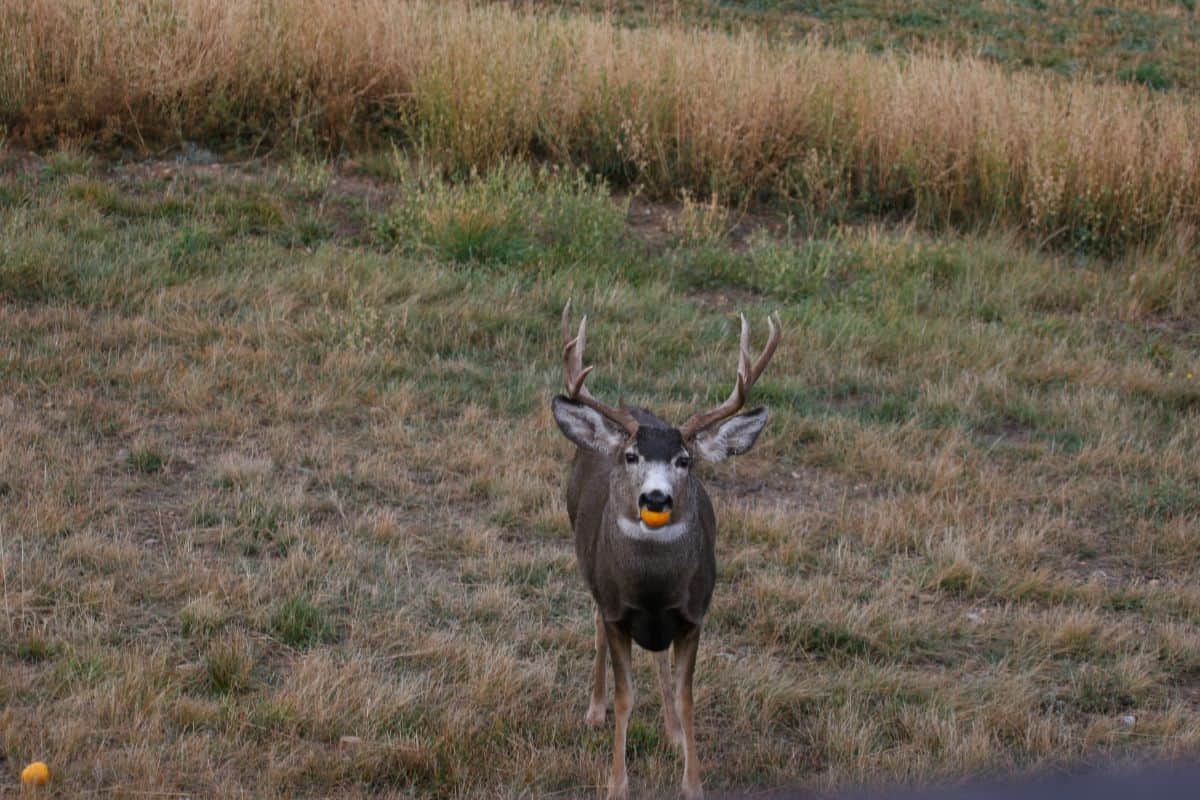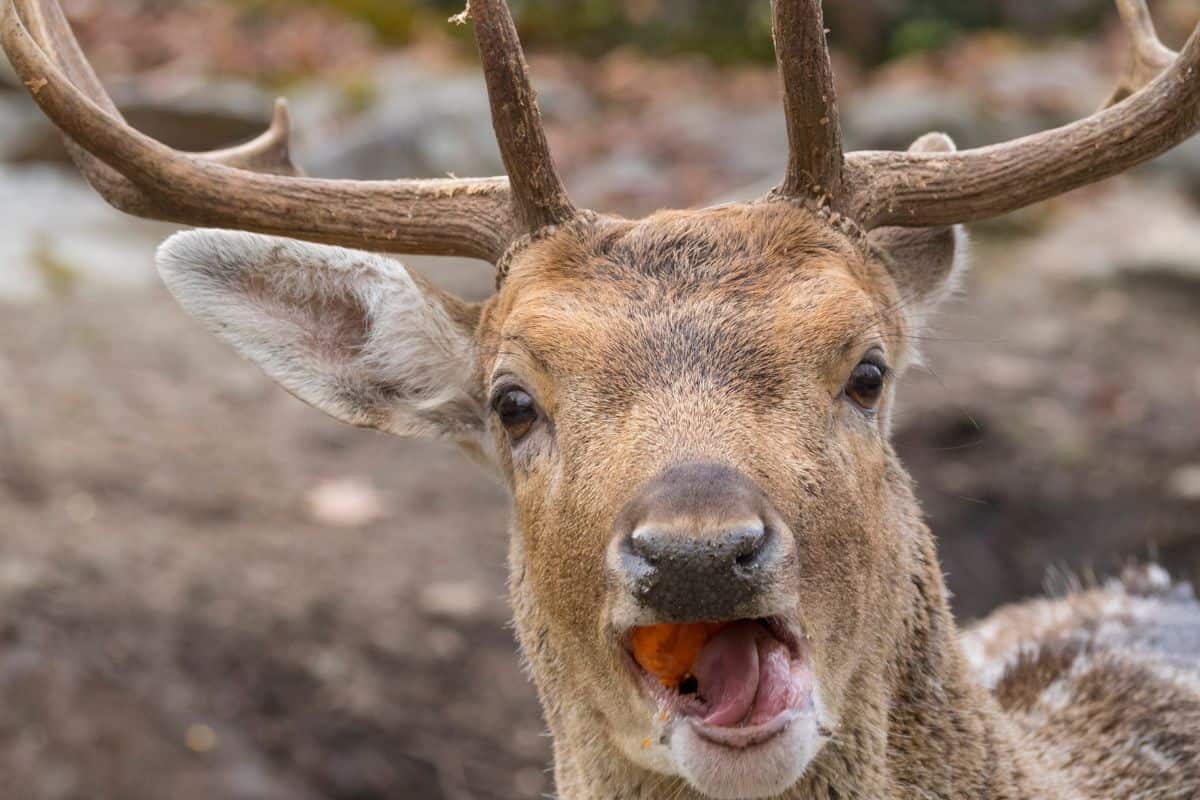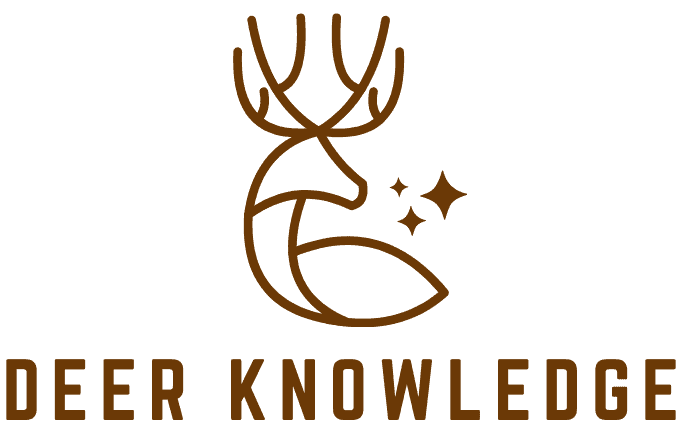Deer are known for their opportunistic eating habits and will consume a wide variety of plant materials. While their mainstays are browse, forbs, and various berries and nuts, they will also eat grasses, sedges, and herbaceous plants. Fruits are not typically a large part of their diet, but they have been known to eat them occasionally.
So, do deer eat oranges?
Can Deer Eat Oranges?
Yes, deer can and often do eat oranges when they stumble across them within their habitat. While oranges do not typically represent a significant proportion of their diet, they will consume them if available. This opportunistic behavior is typical of deer and helps them to survive in a wide variety of different habitats.
It’s been a long-held belief that deer don’t like citrus scents. In fact, some gardeners, even to this day, swear by leaving out lemon, grapefruit, or orange peels around their property in order to ward off deer.
However, there is no scientific evidence to support this claim. While it’s true that deer aren’t the biggest fan of citrus aromas, they still are attracted to the sweetness of the fruit. So, if you’re looking to keep deer away from your oranges, you’re better off using a different method, such as fencing off your orange trees.

Which Part of an Orange Does a Deer Eat? Do Deer Eat Orange Peels?
Deers are not fussy herbivores, so they often eat the entire orange, including the peel. From the fruity segments to the acidic rind, deer will consume it all. Deer eat orange peels, in particular, because they contain a greater concentration of nutrients than the flesh of the fruit.
Orange peels offer deer numerous advantages. They are:
– An excellent source of fiber: Orange peel is also a good source of fiber, which helps deer to digest their food properly.
– Packed with vitamin C: By eating the orange peel, deer can also fulfill their need for vitamin C, boosting immunity.
– A good source of antioxidants: All citrus peels are rich in antioxidants, including natural flavonoids, phenolic, ascorbic acid, and carotenoids which can help to protect deer from free radicals.
– Full of beneficial plant compounds: Orange peels contain beneficial plant compounds, including polyphenols, which help increase circulation (crucial for staying warm in the winter) and reduce inflammation.

What About Other Types of Oranges? Do Deer Eat Tangerines, Clementines, Blood Oranges, or Mandarins?
As mentioned, deer are not fussy regarding their food, so they will often eat whatever type of orange is available. This includes tangerines, clementines, blood oranges, and mandarins, to mention just a few orange varieties deer consume.
The only exception is the sour varieties of orange, which they might not be as inclined to eat because of their tart taste. But, if they are hungry enough, they will still consume sour oranges irrespective of their less desirable flavor profile.
Should I Feed a Deer Oranges?
While there’s no reason why you can serve up oranges (preferably organic and washed) to deer as part of their diet, there are a few considerations you should bear in mind before doing so.
Firstly, it’s not legal to feed deer in some areas due to their status as a pest species. So, before you start feeding oranges to deer, it’s essential to check your local laws and regulations.
Secondly, oranges are by no means a staple for deer. They rarely, if ever, seek them out. Part of the reason deer are such as successful species is they consume a highly varied diet of herbaceous material. They could be grazing on mushrooms in the early morning before finishing the day with berries and acorns in the late evening. This varied diet helps to ensure they get all the nutrients they need to survive.
So, if you choose to feed deer oranges, it’s important not to overdo it, as this could lead to health problems. Loading them up with too much sugar-rich fruit could potentially cause them harm.
As a general rule of thumb, it’s best to only offer deer oranges as an occasional treat rather than making them a regular part of their diet. It’s even more important to take extra care when feeding baby deer, as their delicate and developing ruminant digestive system is more prone to problems.
Lastly, if you are trying to attract deer, be aware that oranges, while often consumed, are by no means their favorite food source. There are several other food groups that deer prefer that will likely be more successful in luring them out, including most varieties of sweet berries.
What Time of Year Do Deer Eat Oranges?
While deer are opportunistic enough to eat oranges at any time of year, they are more likely to consume them during the fall or winter. This is because oranges provide an important source of nutrients and moisture, both of which are in short supply during these seasons.
Leaving oranges out when there’s snow on the ground can be an excellent way of attracting deer to your yard, as they will be drawn in by the sweetness of the fruit. Just bear in mind that if you do this, you might also attract other animals, such as bears, foxes, raccoons, opossums, and any other native fruit-eating animals.
Can Deer Shake Oranges Off Tree Branches?
While theoretically possible, there’s no evidence to suggest that deer actively try to shake oranges off branches in order to eat them. Almost all reports of deer eating oranges of their own accord seem to come from areas where the fruit has already fallen to the ground.
Deer are natural browsers, scanning natural habitats such as forest floors for fallen fruit, nuts, and other edible material. This means they are more likely to come across oranges that have already been dislodged from their branches rather than trying to shake them down themselves.
That said, deers are a pest to commercial orange farmers as deer can easily eat oranges directly from low-hanging branches without the need to shake them off. This can cause serious financial damage to orange growers, as a single deer can consume as much as 10% of an orange grove’s crop in a single night.
Final Thoughts on Deer Eating Oranges
In summary, deer eat oranges as part of their incredibly varied diet. They won’t often seek out this citrus fruit, especially during the abundant spring and summer months. However, during the fall and winter, when other food sources are scarce, oranges can provide an important source of nutrients and moisture.
Upon encountering oranges, they eat the entire fruit, including the peel, seeds, and flesh. If you choose to feed deer oranges, be sure to do so in moderation and avoid offering them in any significant quantity.

